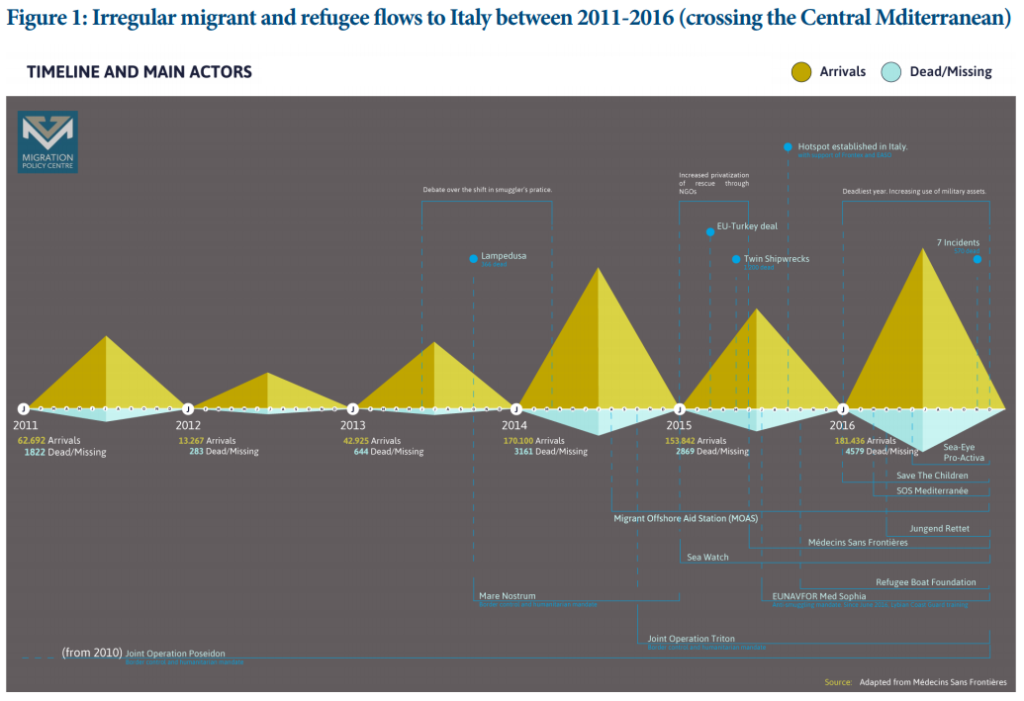Posted on 09 Apr 2017
by Luigi Achilli, Migration Policy Centre, and
Gabriella Sanchez, University of Texas at El Paso
Abstract
Despite the scaling-up of EU surveillance, enforcement measures and patrolling operations aimed at border security, the flow of irregular migrants towards Europe shows little sign of abating. This policy brief shows, first, that border enforcement and barriers to mobility lead migrants to rely on clandestine mechanisms to reach destinations abroad, even if this involves significant risk. Second, policy interventions aimed at disrupting smuggling networks may make smuggling more lucrative and increase incentives for criminals to enter this market. Third, more stringent border policies and practices can facilitate involvement by irregular migrants in human smuggling. We conclude by showing that ending irregular crossings is an unlikely outcome so long as emphasis is placed on security vectors alone. If the intended goal of security initiatives is the suppression of smuggling networks, they must be accompanied by structural, comprehensive approaches and solutions. Accessible pathways for people to move across the Mediterranean into Europe are a necessary component of this response.




